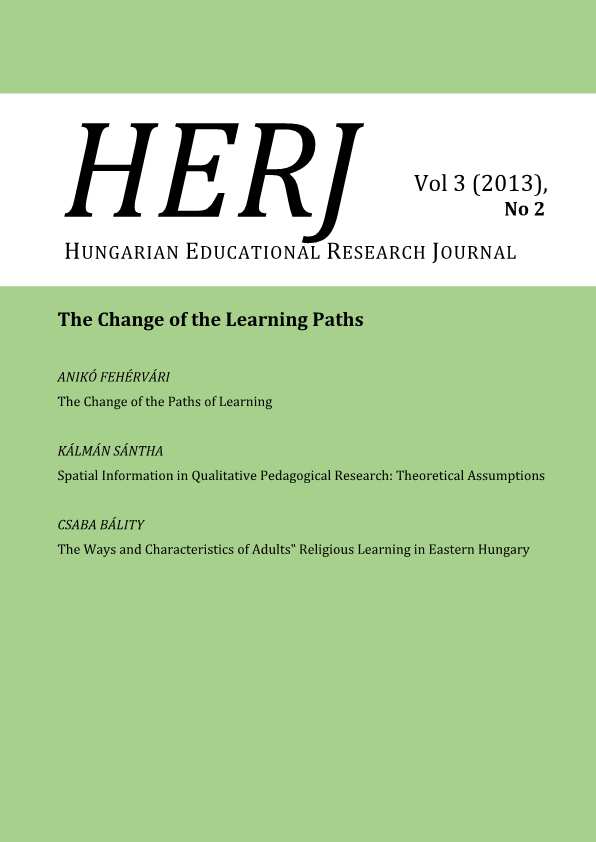Spatial Information in Qualitative Pedagogical Research: Theoretical Assumptions
Spatial Information in Qualitative Pedagogical Research: Theoretical Assumptions
Author(s): Kálmán SánthaSubject(s): Education
Published by: Hungarian Educational Research Association (HERA)
Keywords: CAQDAS; geo-references; data triangulation
Summary/Abstract: The study emphasises the role spatial information can fulfil in qualitative pedagogical research. It highlights the phenomenon that, thanks to 21st century innovations in the world of computer assisted qualitative data analysis, geo-references appeared as a possibility of connecting and presenting the spatial dimensions of social processes. The theory-oriented study stresses the role geo-links can fulfil in qualitative research methodology, underscores the connection between geo-references and data triangulation, and also discusses the ethical issues emerging while handling spatial information.
Journal: HERJ Hungarian Educational Research Journal
- Issue Year: 3/2013
- Issue No: 2
- Page Range: 12-19
- Page Count: 8
- Language: English

